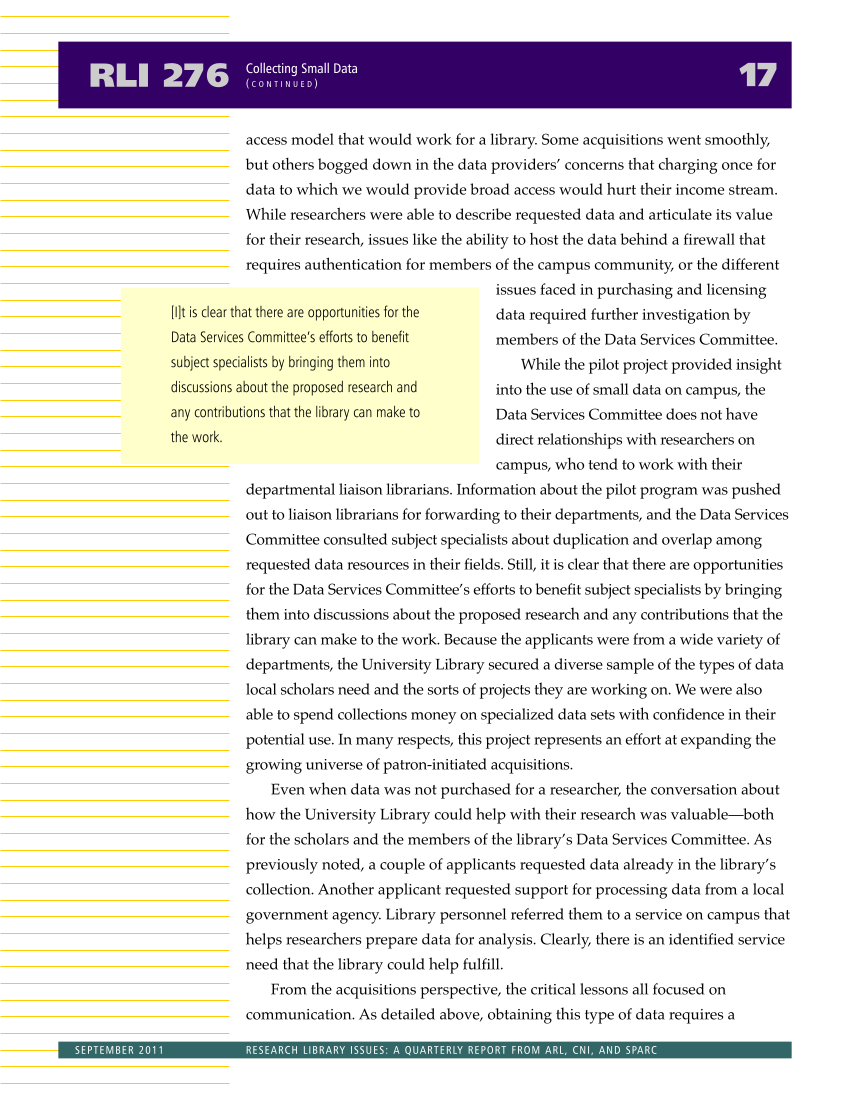access model that would work for a library. Some acquisitions went smoothly, but others bogged down in the data providers’ concerns that charging once for data to which we would provide broad access would hurt their income stream. While researchers were able to describe requested data and articulate its value for their research, issues like the ability to host the data behind a firewall that requires authentication for members of the campus community, or the different issues faced in purchasing and licensing data required further investigation by members of the Data Services Committee. While the pilot project provided insight into the use of small data on campus, the Data Services Committee does not have direct relationships with researchers on campus, who tend to work with their departmental liaison librarians. Information about the pilot program was pushed out to liaison librarians for forwarding to their departments, and the Data Services Committee consulted subject specialists about duplication and overlap among requested data resources in their fields. Still, it is clear that there are opportunities for the Data Services Committee’s efforts to benefit subject specialists by bringing them into discussions about the proposed research and any contributions that the library can make to the work. Because the applicants were from a wide variety of departments, the University Library secured a diverse sample of the types of data local scholars need and the sorts of projects they are working on. We were also able to spend collections money on specialized data sets with confidence in their potential use. In many respects, this project represents an effort at expanding the growing universe of patron-initiated acquisitions. Even when data was not purchased for a researcher, the conversation about how the University Library could help with their research was valuable—both for the scholars and the members of the library’s Data Services Committee. As previously noted, a couple of applicants requested data already in the library’s collection. Another applicant requested support for processing data from a local government agency. Library personnel referred them to a service on campus that helps researchers prepare data for analysis. Clearly, there is an identified service need that the library could help fulfill. From the acquisitions perspective, the critical lessons all focused on communication. As detailed above, obtaining this type of data requires a RLI 276 17 Collecting Small Data ( C O N T I N U E D ) SEPTEMBER 2011 RESEARCH LIBRARY ISSUES: A QUARTERLY REPORT FROM ARL, CNI, AND SPARC [I]t is clear that there are opportunities for the Data Services Committee’s efforts to benefit subject specialists by bringing them into discussions about the proposed research and any contributions that the library can make to the work.


































